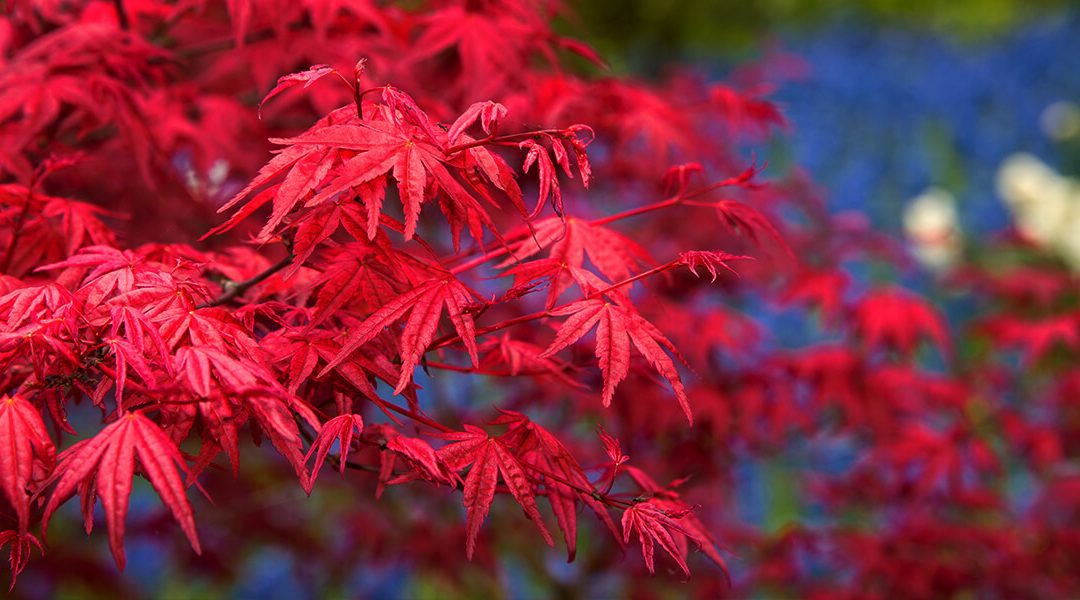Japanese maples are small trees prized for their color and graceful form. Their fall fireworks are only the finale of a whole summer of colorful leaves, which emerge red or purple in many varieties. Here’s everything you need to know about choosing and caring for these stunning trees!
Where to Plant Japanese Maples
Plant Japanese maples wherever you want to add an elegant, colorful statement that instantly draws the eye. Here are the kinds of locations where they’ll feel most at home and where caring for them will be the easiest:
- Soil: Japanese maples thrive in moist, well-draining suelo that’s high in organic matter. If you have clay soil, plant them in an elevated location to keep the roots away from pooling water. We also recommend soil amendments if you have mostly clay soil—standing water will not make these trees happy.
- Shelter: As smaller trees, they do best in a spot protected from strong winds, especially in the winter. Since they like to leaf out early in the spring, a place with protection from late spring frost will serve them well, too.
- Light: The trees benefit from partial shade, ideally in the afternoon. Too much direct sun can scorch their leaves—especially when they are young and just getting established.
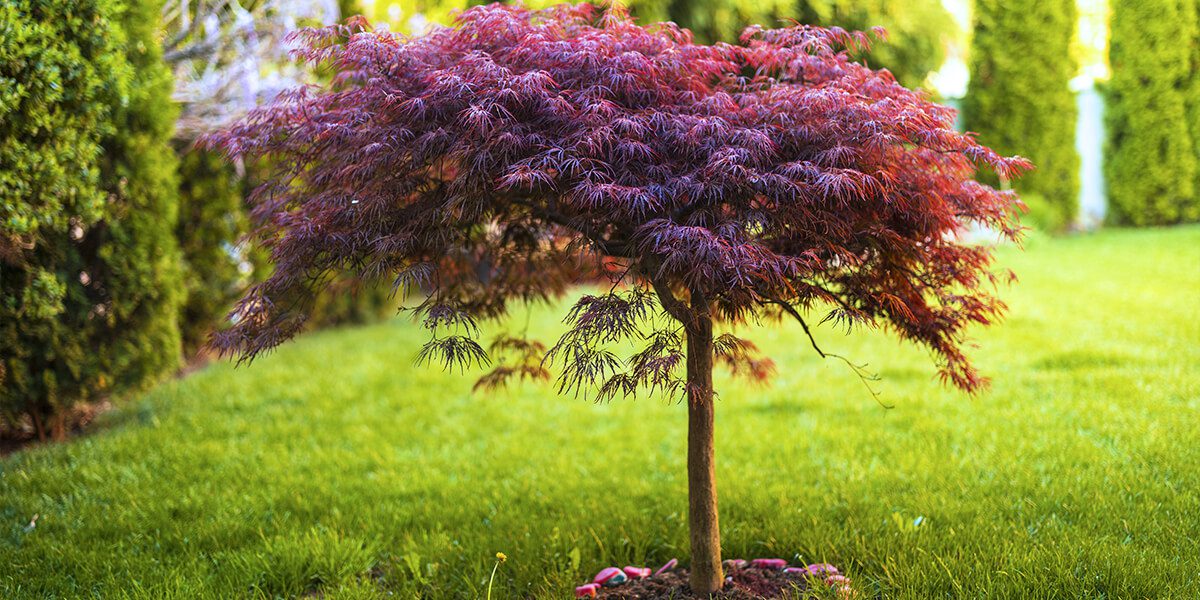
How to Prune Japanese Maples
Japanese maples grow an elegant shape on their own, without the need for any pruning (except for dead, diseased, or damaged branches, which should always be removed). Over time, if you want to create an open look, thin out the branches as you see fit. Or, to create a well-defined canopy, you can take out limbs around the base. You can also decide to keep a single trunk or encourage multiple stems. Remember, most pruning should be done in late winter or early spring while the tree is still dormant.
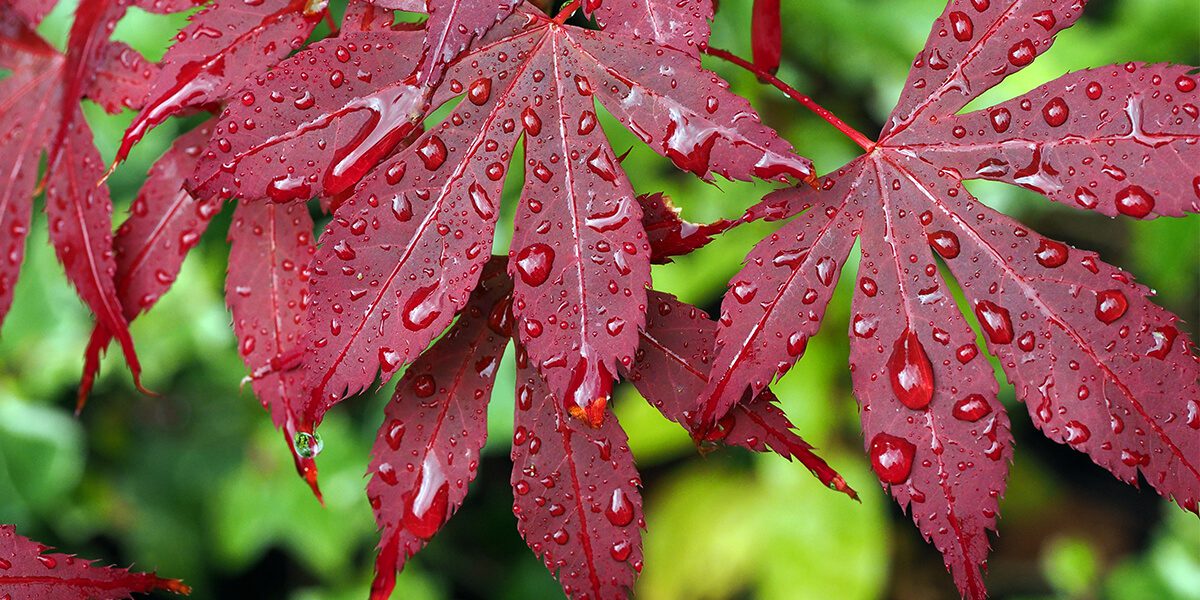
Watering Tips for Japanese Maples
Moderation is the key to caring for Japanese maples, especially when it comes to riego,. Remember to water them well during and after planting. Once they’re established, water them evenly and help them during dry spells. Mulching around the base retains moisture and reduces the frequency of watering.
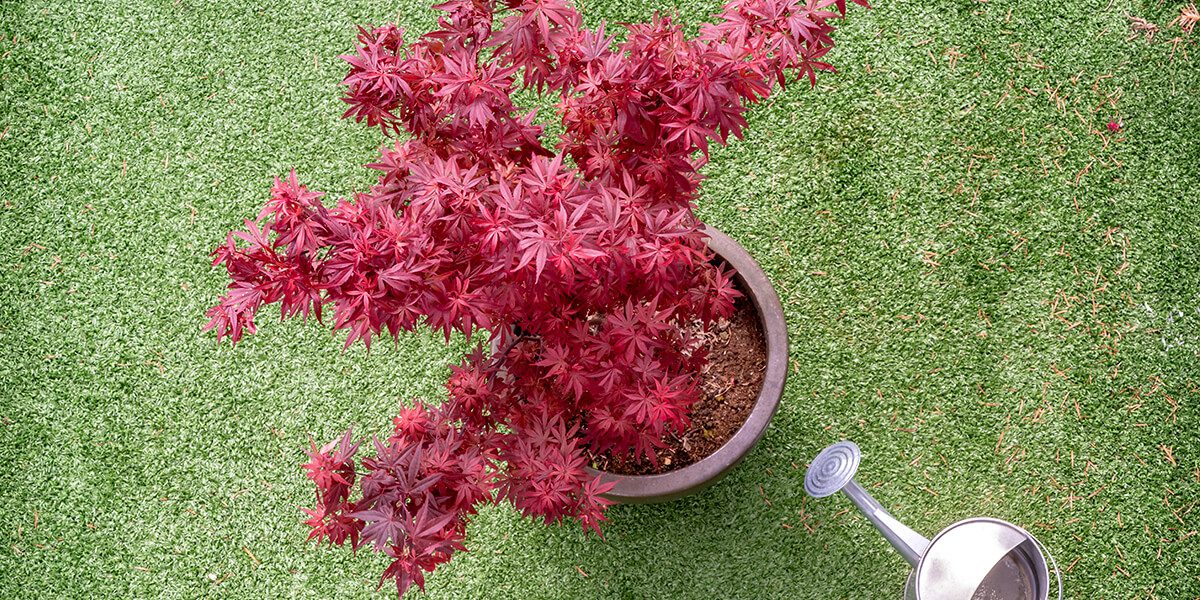
Japanese Maples for Illinois
Now that you’re up to speed on caring for Japanese maples, let’s get to know their personalities. These varieties thrive in Chicagoland while bringing the exquisite color and grace that they’re known for:
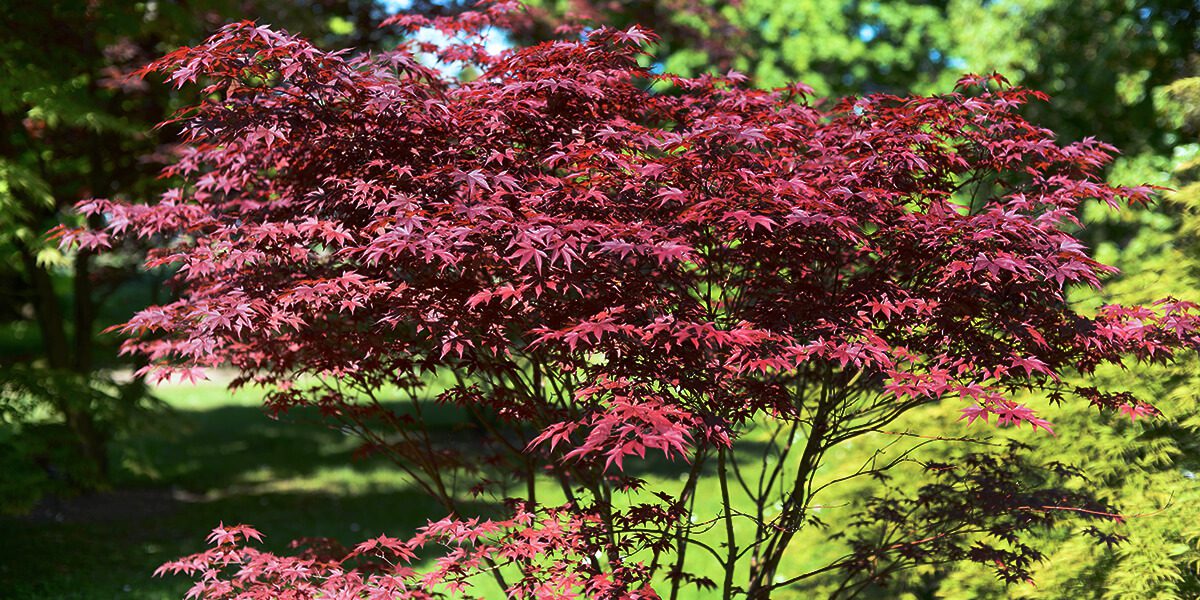
Bloodgood features red-purple leaves in the summer that turn crimson in the fall. It grows 15-20’ in a rounded shape from a single or multiple stems.
Crimson Queen has fern-like, burgundy leaves that glow vermillion in the fall. It reaches 5-6’ high and 5-6’ wide with a weeping form.
Emperor 1 grows dark red leaves that brighten to scarlet in the autumn. It stands 10-15’ feet high at maturity in a rounded habit.
Red Dragon boasts of feathery, merlot leaves that flush cherry red in the autumn. As a dwarf variety, it reaches full size at 5-6’ high with a similar width.
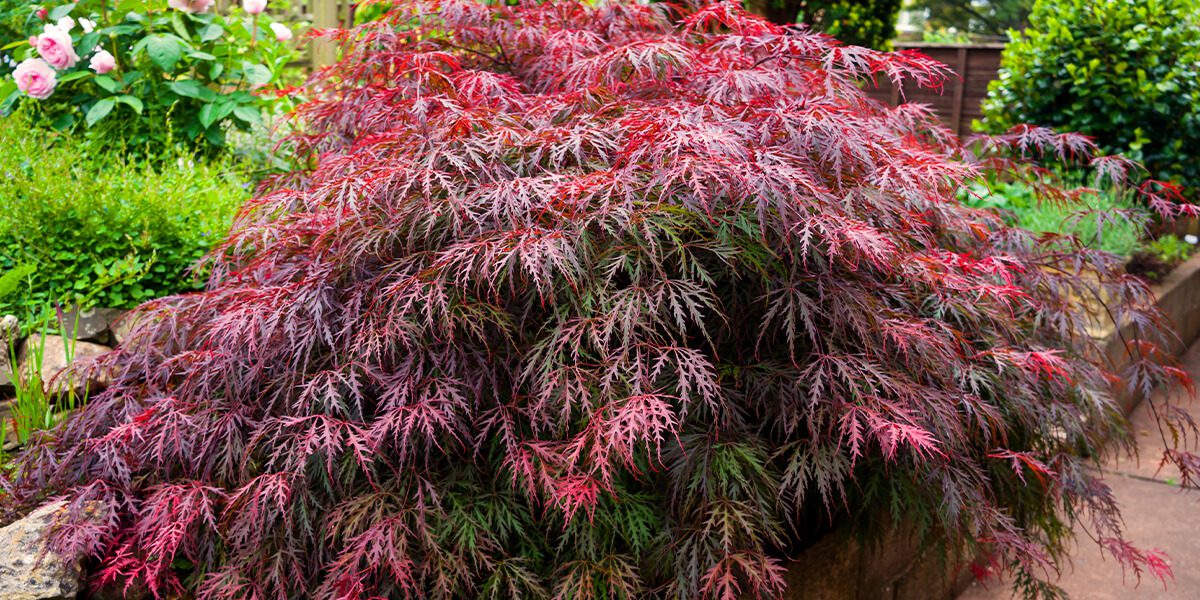
Tamukeyama emerges with lacey, crimson leaves in the spring that go purple in summer before a fiery farewell in the fall. This Japanese maple grows to a height of 5-6’ and spreads to 7’ in a cascading shape.
Japanese Maples offer captivating color, grace, and a unique mystique that’s hard to put into words.
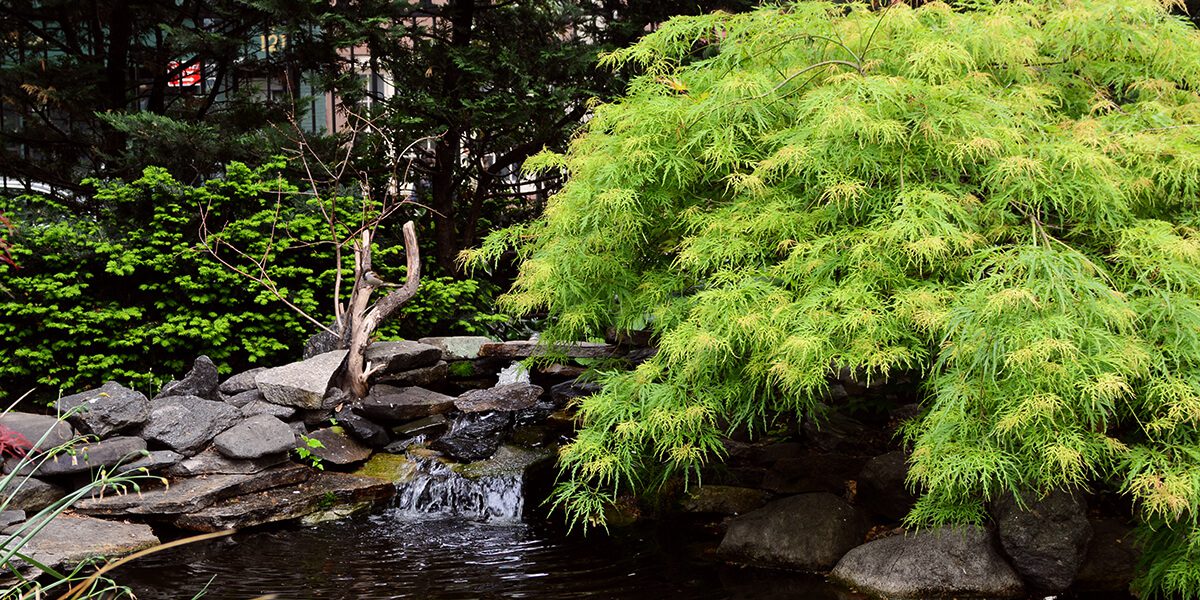
Weeping Green displays a feathery canopy of bright green that turns yellow with accents of red and orange in the fall. It grows to a modest size of 5-6’ in height and spread.
Ryusen Lionshead has bright green leaves that flush red and orange in the fall. This Japanese maple tolerates full sun and grows in a weeping form up to 6’ in height.
Every type of tree brings its own unique style and feel to the garden. Japanese Maples offer captivating color, grace, and a unique mystique that’s hard to put into words. Each variety offers something special, and growing and caring for them is simple. To experience their charm in person, stop by our nurseries in Bloomingdale and Carpentersville, where we have many trees waiting for a new home!
Platt Hill Nursery es el principal centro de jardinería y vivero de Chicago.

